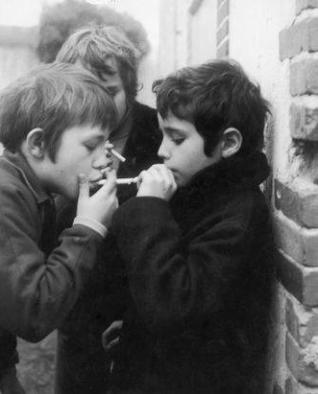

The Liver Life Project
Suffer Little Children (and Teenagers)


Suffer Little Children (and teenagers)
Alcohol is no ordinary commodity. Its impact our lives and our families is habitually underplayed, and the personal, social and health risks involved are ignored or considered an
acceptable dimension of alcohol use. This undermines the change in our culture that is required if we are to prevent the harm that blights the lives of whole families and harms
the development of children trapped by the effects of their parents’ problematic drinking.
1 in 5 children in the UK is affected by their parents' drinking.
Research shows that parental alcohol misuse can have a considerable negative effect on children, young people and
the family. Children growing up in households where alcohol use is problematic often do not achieve their full potential in life. They may have low self-esteem, feel unsafe and
find it difficult to engage in relationships, illustrating a lack of trust often into adulthood. Such profound effects may impact on the five outcomes of the
“
Every Child Matter’s
”
framework:
https://www.gov.uk/government/publications/every-child-matters
Although this policy was brought in back in 2003, it is still very much an important policy for anyone
working with children.
Also, alcohol misuse is often hidden by parents, by family members and by children themselves. This can have serious consequences for children, including (but not limited to)
poor educational attainment, emotional difficulties, neglect, abuse and taking on inappropriate caring responsibilities. Alcohol misuse is also linked with family disharmony and
violence.
“Parental alcohol misuse damages and disrupts the lives of children and families in all areas of society, spanning all social classes; it
blights the lives of whole families and harms the development of children trapped by the effects of their parents’ problematic
drinking” (Turning Point, 2006):
https://www.drugsandalcohol.ie/6276/1/3499-3720.pdf
Different methods of collecting data have been used in the jurisdictions of the UK. One report estimates that between 780,500 and
1.3 million children are, or have been, affected by parental alcohol problems. Another review seeking more accurate statistics
concluded that the number of children living with substance misusing parents exceeded earlier estimates and that over three million
children (30%) under 16 years in the UK lived with an adult binge drinker.
Successive governments have failed to address this issue, and for years many have turned a blind eye to the scale of this problem. Due to intense political pressure and disgust,
moves are finally afoot to address this issue:
http://researchbriefings.files.parliament.uk/documents/POST-PN-0570/POST-PN-0570.pdf
The Children's Society offers some good advice and support for those children and teenagers who have a parent or guardian who has an alcohol problem. Children need to know
that there is help out there and that there are people who truly understand, and who can empathise with what they are having to go through. They need not suffer in silence.
Help is just a phone call away: https://www.childrenssociety.org.uk/
A little known charity has been working hard behind the scenes to add some much-needed love and support to those children who are trapped, confused and troubled. This
organisation is called NACOA (The National Association for Children of Alcoholics). Here children get to have a voice. They need no longer suffer in silence, and feel alone and
scared. Mental child abuse should never be tolerated within any society: http://www.nacoa.org.uk/
Back in 2019, I happen to attend a local support group trade fair in my area. On one of the stalls, were some nurses who go into all the local schools and educate children about
such things as basic health and personal hygiene. Because I happen to live in an area with a high mortality rate when it comes to liver disease. I thought this would be an ideal
opportunity to introduce these nurses to NACOA. They are now talking to children in schools and raising awareness of alcohol abuse in the home. So much more still needs to be
done.
I have added these two videos here to try and highlight the plight of these poor children and to try and show just how damaging alcohol can be. Not just for the user with the
problem, but how families can become torn apart. The second of these two videos (on the right) is rather emotional, for this, I make no apologies. I hope it does make a positive
impact with those with an alcohol problem and make them think twice about the damage that is all to often caused.







Teenagers and Booze
Sadly it’s becoming increasingly common to find not only adults but also teenagers and children who will now self-medicate or experiment with alcohol. More and more young teenagers are turning up at A&E departments suffering from the effects of alcohol abuse. Sadly today’s modern society puts a heavy burden on the young as they are having to deal with exam stress, bullying, peer pressure, both mental and physical abuse and a feeling of being unloved or unwanted. I suspect it’s also about growing up and wanting to look cool, to feel like you're now a grown-up and no longer a child. Back when I was a teenager it was cigarette smoking, everyone smoked back then. If you didn’t smoke you felt excluded and not normal. You were uncool and a chicken. Sadly, peer pressure hasn’t changed much over the years. This BBC video (see above) featuring Sir Ian Gilmore (Professor of Hepatology and previous President of the Royal College of Physicians in London), it was broadcasted back in 2013. I used to think that children could buy alcohol from unscrupulous corner shops, but it appears that many streetwise kids know who the local drug addicts are, and they pay them to buy the alcohol for them. It’s a win win. The kids are happy, the shopkeeper’s happy, and so is the drug addict. Alcohol is still available at pocket money prices. I’ve just had a look online and see that a famous national supermarket chain here in the UK is selling a 4% abv 2.ltr bottle of cider for just £2.00p (that equates to just £1.00p per ltr). So, here we are, It’s now over some 11 years since Sir Ian talked of this stark warning about young people drinking, yet nothing within England has changed. Or has it?


In April 2024 the World Health Organization (WHO) published an alarming report. The BBC report, “England child alcohol use tops global chart” A third of 11-year-olds and more
than half of 13-year-olds in England have drunk alcohol - putting it top out of 44 countries examined in a report by global health experts.
Girls were found to be more likely than boys to be drinking and getting drunk aged 15 in England, Wales and Scotland. The World Health Organization (WHO) report said alcohol,
which can damage children's brains, has been normalised.
It called on countries to introduce more measures to protect children.
The report looked at data from about 4,500 school-age children from each country in Europe, Central Asia and Canada in 2021-22 on cigarette smoking, vaping, alcohol and
cannabis habits among adolescents.
The UK has always had relatively high alcohol use among young people but it has been declining for some time. Study coordinator Dr Jo Inchley, from Glasgow University, said
signs that more children were starting to drink at a young age were "concerning". "Trying substances is part of growing up and experimenting but alcohol has long-term effects
on health," she said. Dr Inchley said being exposed to more alcohol at home, changing attitudes of parents and the rebound effects after the Covid lockdown could all be
factors in the trend.
Research shows the earlier children start drinking, the more serious a problem it can become when they are older. At age 13, the report found 12% of girls and 9% of boys in
England had been drunk at least twice in their lives. At 15, that had risen to a third of girls and a quarter of boys. More than half of girls said they had drunk alcohol in the past
30 days: https://www.bbc.com/news/health-68884005
The same news story also appeared in all the national papers and was covered on “Talk TV” here in the UK.




































